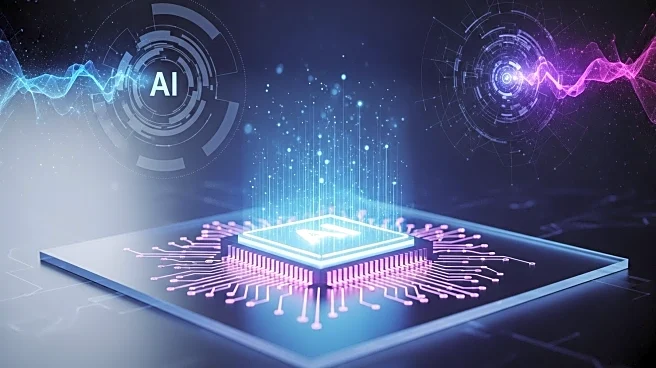What's Happening?
OpenAI has announced the development of an AI-powered hiring platform, named the OpenAI Jobs Platform, which aims to connect businesses with employees. This new service is expected to launch by mid-2026 and will place OpenAI in direct competition with LinkedIn. The platform will utilize AI to match companies' needs with workers' skills, offering a dedicated track for small businesses and local governments to access top AI talent. OpenAI is also expanding its offerings beyond its core product, ChatGPT, with plans for additional applications such as a browser and a social media app. The company will offer certifications for varying levels of AI fluency through its OpenAI Academy, with a pilot program set to begin in late 2025. OpenAI is collaborating with Walmart to certify 10 million Americans by 2030.
Why It's Important?
The introduction of OpenAI's hiring platform signifies a major shift in the recruitment industry, potentially challenging LinkedIn's dominance. By leveraging AI, OpenAI aims to streamline the hiring process, making it more efficient and tailored to specific business needs. This move could disrupt traditional job matching methods and impact the way companies recruit talent. The certification program also highlights the growing importance of AI literacy in the workforce, as OpenAI seeks to equip individuals with the skills needed to thrive in an increasingly AI-driven economy. The collaboration with Walmart underscores the scale and ambition of OpenAI's initiative, which could have significant implications for employment and education sectors.
What's Next?
OpenAI's platform is set to launch by mid-2026, and its success will likely depend on its ability to effectively compete with LinkedIn and other established recruitment services. The pilot certification program will begin in late 2025, with the goal of certifying 10 million Americans by 2030. As OpenAI expands its offerings, it may face challenges related to AI ethics and the potential displacement of traditional jobs. Stakeholders, including businesses and educational institutions, will need to adapt to these changes and consider the implications of AI integration in the workforce.









